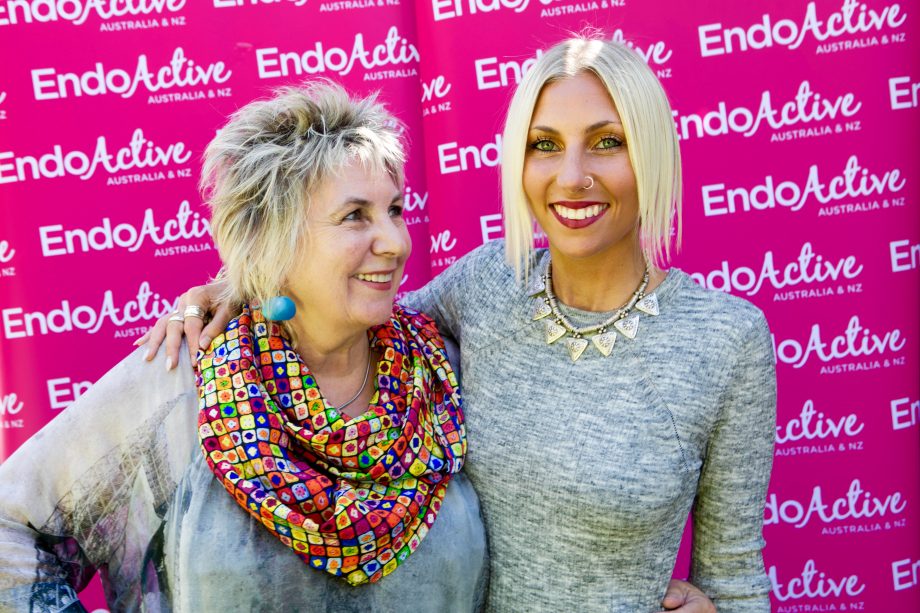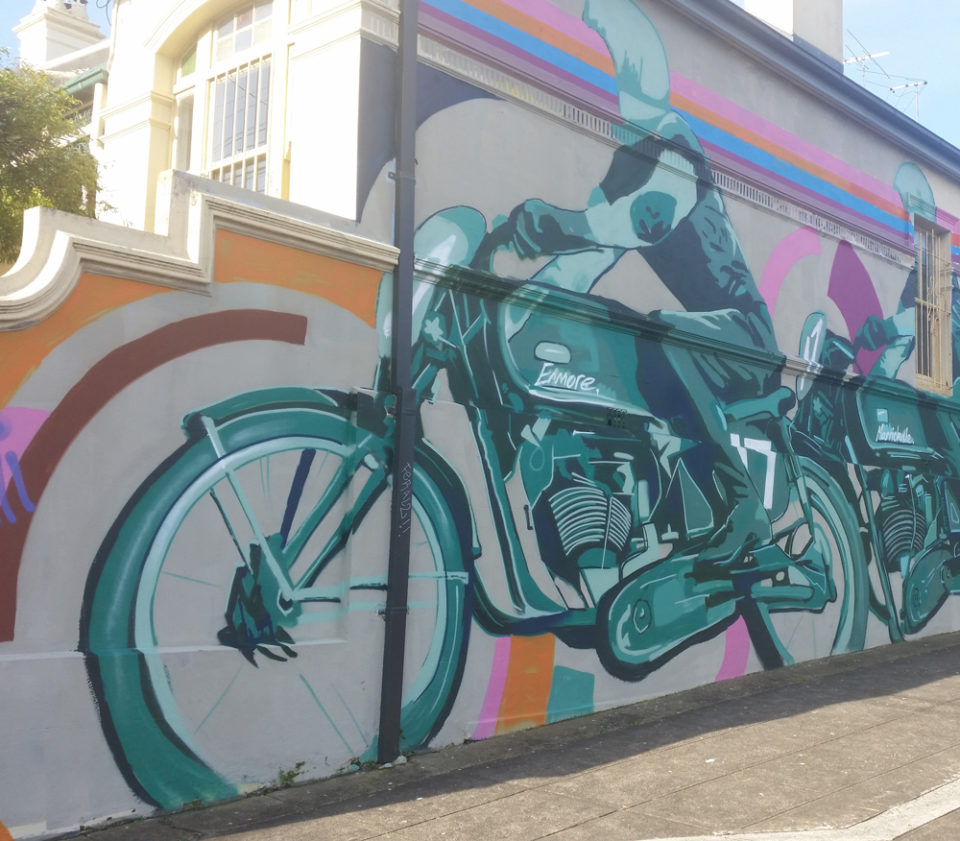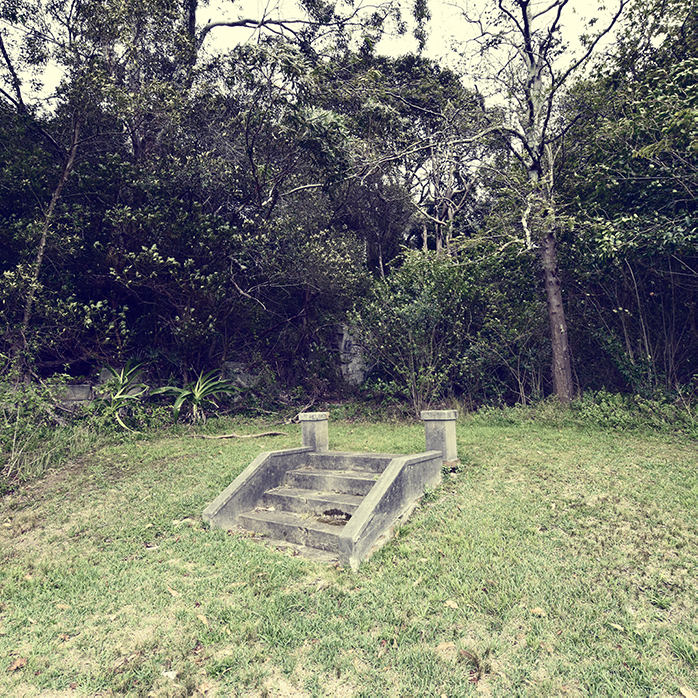It all began for Sylvia Freedman when she got her first period. “I was spoilt rotten. My mum even threw a period party for me with all the women in my family. I felt quite proud that I was maturing.”
“Back then, all the girls in the year above had had their periods so I felt like: yes! I’m in the club.”
But Freedman wasn’t in the club.
Years of suffering and debilitating pain followed, only to be repeatedly told by health professionals that she just had ‘period cramps’ and to learn to ‘deal with it’.
“Inside it felt like I was being ripped apart,” she says. “It just wasn’t the kind of pain that I could push through.”
At 21, Freedman underwent a laparoscopic surgery that finally diagnosed her with Endometriosis. Multiple surgeries followed and doctors kept telling her “not to worry”. Yet, she was still on the couch in chronic pain, unable to work and study for university.
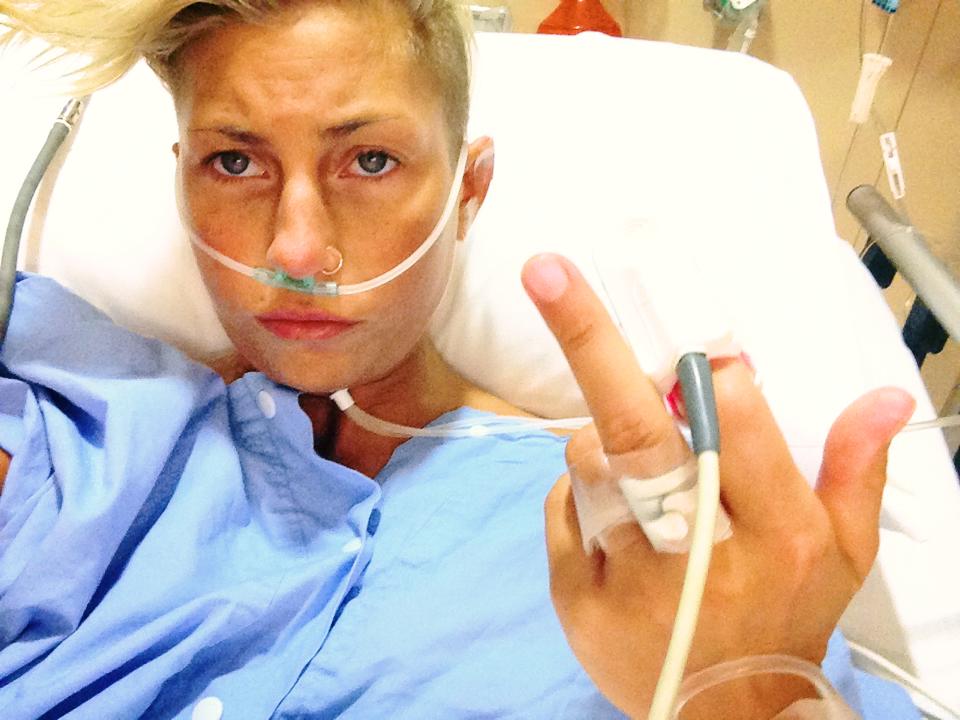
Sylvia Freedman in hospital. Image: supplied.
Lesley Freedman had had enough of watching her daughter suffer. Using her background in media and research, she discovered that a drug called Visanne was being used overseas to good effect. She and her daughter Sylvia launched an online petition to bring it into Australia. After 74,500 signatories and within weeks of the petition closing, Bayer had agreed to release the drug into Australia.
Sylvia Freedman is now well known for her national advocacy work as the co-founder of the not-for-profit, health promotion charity: EndoActive Australia and NZ.
In December 2017, she found herself at Parliament House, delivering a speech including her own struggles with endometriosis. After Freedman sat down, to her surprise health minister Greg Hunt issued a formal apology as well as announcing that he would implement the first ever National Action Plan for endometriosis.
“It was a monumental moment,” says Freedman. “A real pinch yourself moment. To all of a sudden have recognition after going so long without, was incredible for us.”
Endometriosis is a disease that affects one in ten women worldwide. It occurs when cells similar to the lining of the uterus infiltrate the pelvis. It can lead to excruciating, chronic, pelvic pain and, in some cases, infertility. It affects roughly 700,000 Australian women, yet endometriosis remains one of the most underfunded and unrecognised conditions.
“What drives me is a sense of injustice,” says Freedman. “For years this serious public health issue has been unrecognised and overlooked.”
Finally, through people like Freedman, change is happening. Celebrities such as Emma Watkins from the Wiggles, the U.S. singer Halsey and Lena Dunham, creator and writer of HBO series Girls, have for the first time spoken publicly about their struggle with endometriosis. But for Freedman, there is still a long way to go.
Along with the Pelvic Pain Foundation of Australia, Endometriosis Australia, the Queensland Endometriosis Association, and the Canberra Endometriosis Network, Freedman formed an advocacy body called the Australian Coalition for Endometriosis (ACE). Together, they are now assisting the federal government to design the National Action Plan for Endometriosis, focusing on education, research and care. Most recently, $1M to raise awareness amongst GPs has been announced.
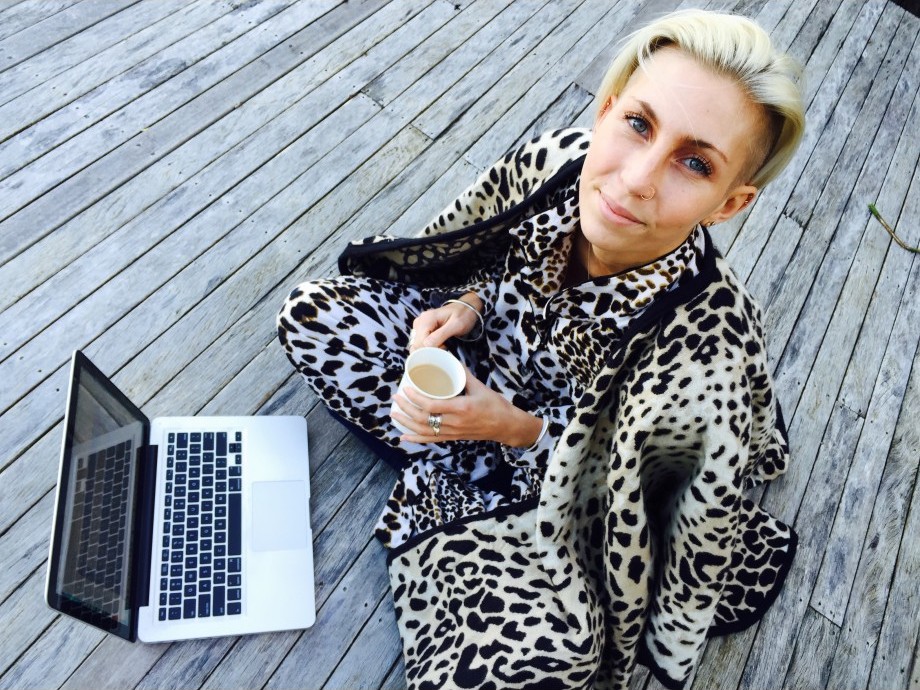
Sylvia Freedman. Image: supplied.
“GPs absolutely need to have more awareness on endometriosis,” says Freedman. “They are very, very important in this instance because they are probably the first port of call. It is imperative that they have an intimate understanding of, and compassion for women and girls.”
Freedman still suffers from endometriosis. Managing her symptoms involves eating an anti-inflammatory diet, getting enough sleep and exercise.
“I take the good with the bad,” she says. “This disease has taught me strength. The things I have been able to achieve outweigh the months and years I have spent in bed and in pain.” Freedman says her advocacy work has also given her purpose. “Now I have the opportunity to help others which I am really passionate about.”



